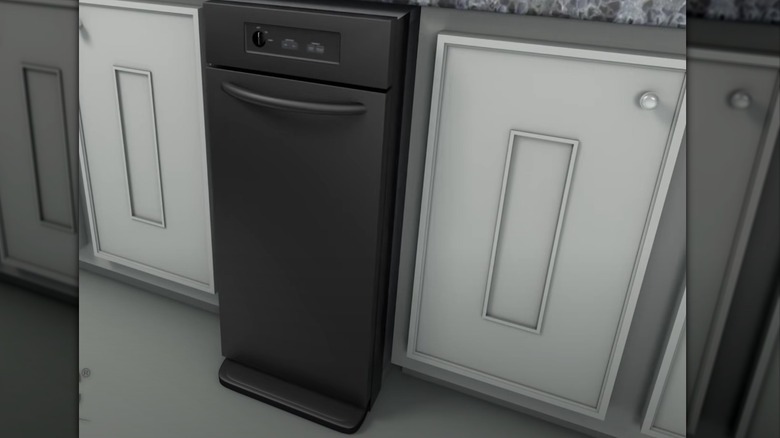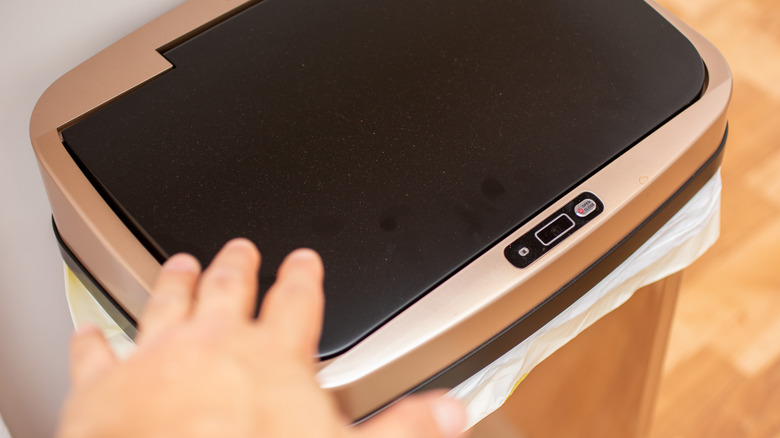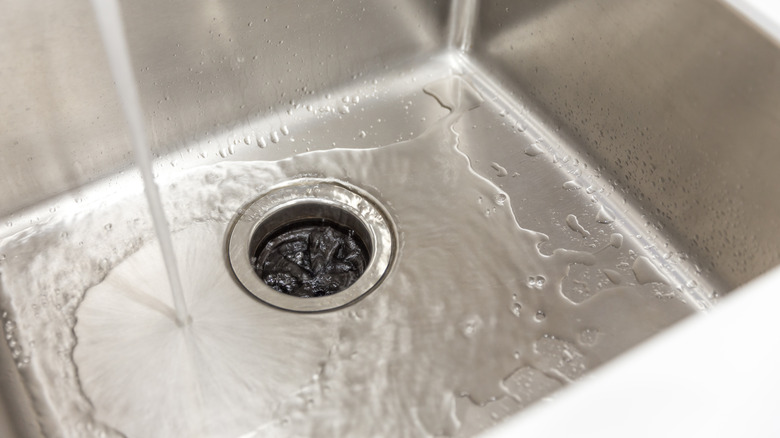The Hidden Downsides To Trash Compactors
For those who live on high floors in apartments, taking out the trash can be a dreaded task. Lugging your trash to a dumpster or outside bin can be challenging. Even if you don't live on a high floor, taking out the trash can still be annoying — and it typically has to be done every day.
There is a solution to this problem: replacing your regular trash can with a trash compactor. Trash compactors are trash bins with a metal ram, activated by a switch, that smashes trash to make it more compact. They can either be installed into your cabinets or free-standing. Trash compactors allow for six bags of trash to fit into just one bag, per Architecture Art Designs. Because more trash can fit into one bag, trash compactors allow for fewer trips to the outside bin or the curb. This could save you money, as your trash won't need to be collected as often. Also, trash compactors are more environmentally friendly than regular trash cans, per Designing Idea, because your trash will take up less space in landfills. However, before you purchase a trash compactor, there are some downsides to consider.
Downsides to trash compactors
The first downside is that, because trash will stay in your home longer, the compactor may begin to smell. Newer models feature charcoal filters or air fresheners that can help reduce the smell, per Architecture Art Designs. But the replacements for these will be an added expense, and they most likely won't completely eliminate the odor. Another cost you'll have to consider is the special bags needed. You cannot use regular trash bags in a trash compactor since the bags need to be able to hold much more trash without breaking.
Additionally, because each bag holds much more trash, your bags will be difficult to move. American Appliance Repair says that each bag of compacted trash typically weighs thirty to fifty pounds, which could be difficult for some to carry, especially if they have to take their trash down a staircase. Finally, trash compactors can break down and may need to be serviced, per Designing Idea, leading to more expenses. On top of that, trash compactors cost much more (about $800 to $1,000 more) than regular trash cans.
A popular alternative
A similar device to a trash compactor is a garbage disposal. Installed in the sink, a garbage disposal is a regular item in almost every home, and it has some added benefits over trash compactors, per Dispozal. Unlike trash compactors, garbage disposals actually break down waste. This means they most likely won't have any lingering smells. They're also more affordable (at about $200) and can be easier to install than a trash compactor. Simply Green Plumbing adds that garbage disposals also reduce landfill waste, making them environmentally friendly. They're also easy to maintain and operate.
However, garbage disposals also come with their fair share of downsides, as outlined by Dispozal. While trash compactors allow almost every type of waste, only food can be discarded in a garbage disposal (and only certain types). You'll also need a regular trash can if you have a garbage disposal. Also, garbage disposals can get clogged. Both garbage disposals and trash compactors can be noisy, which is another downside.


